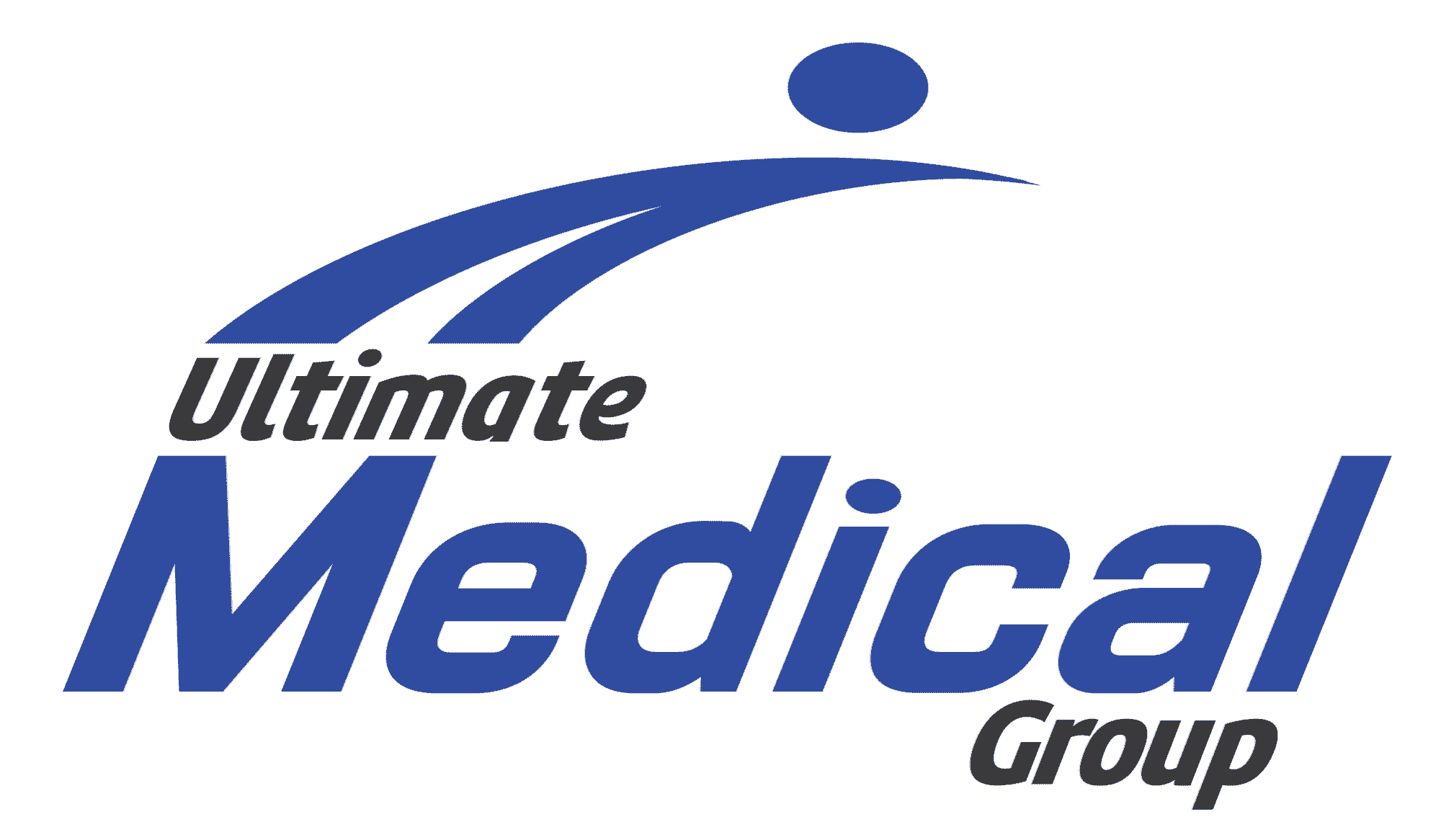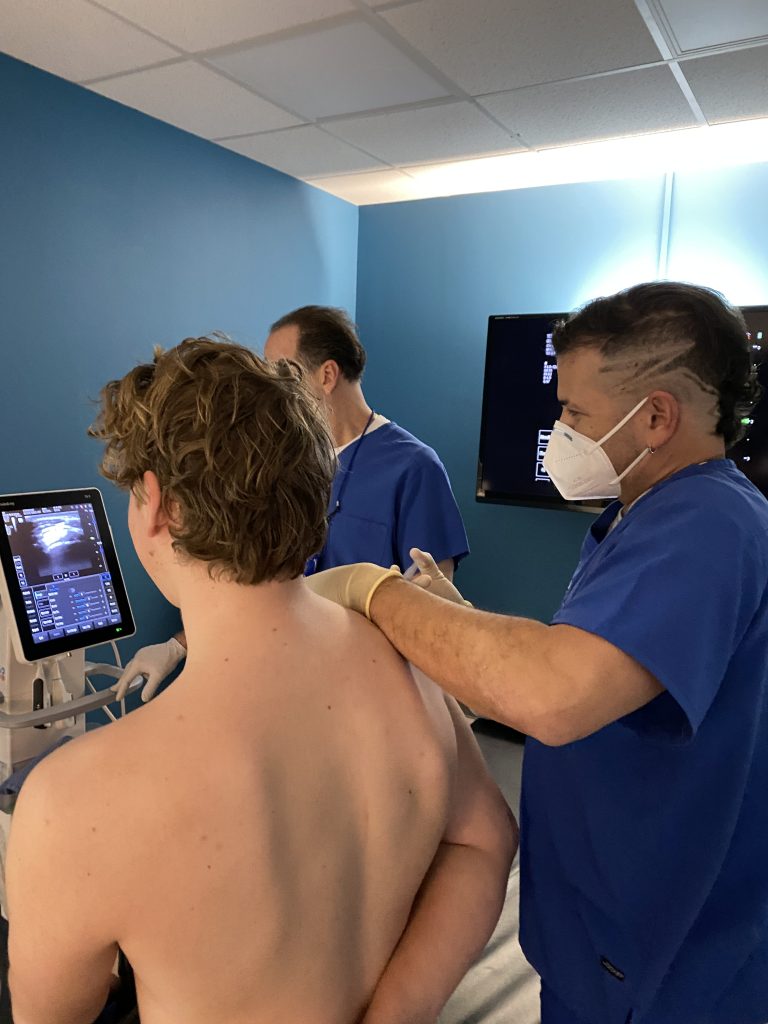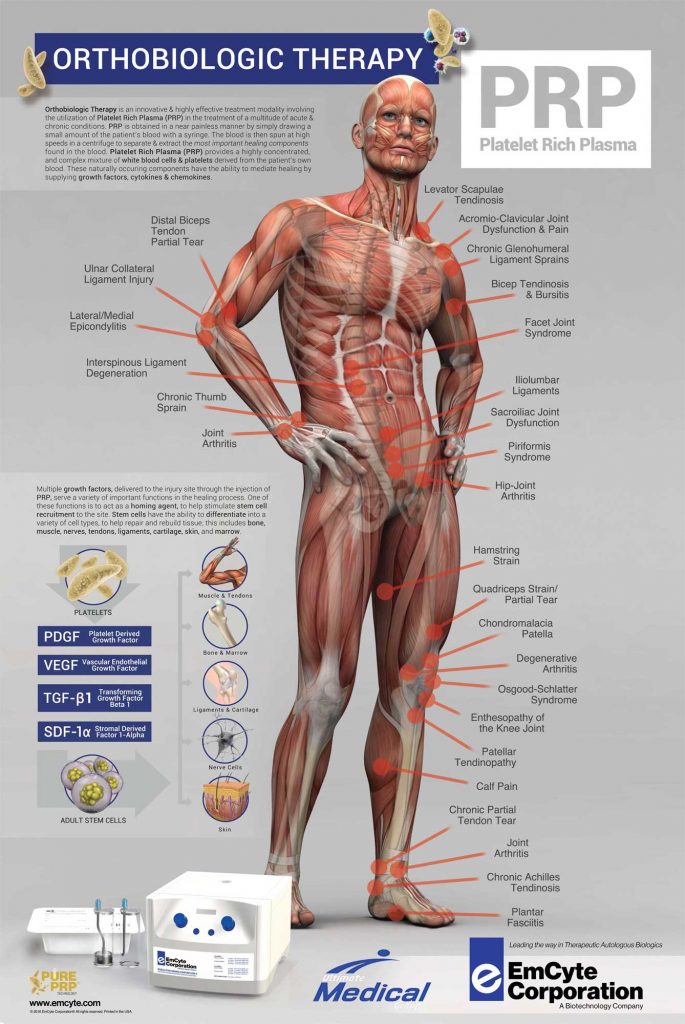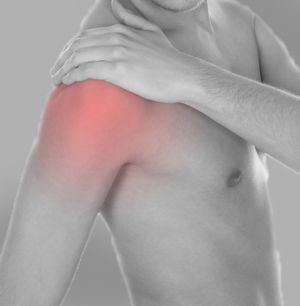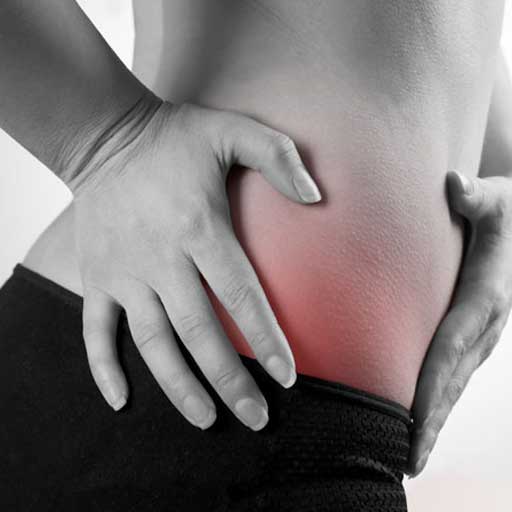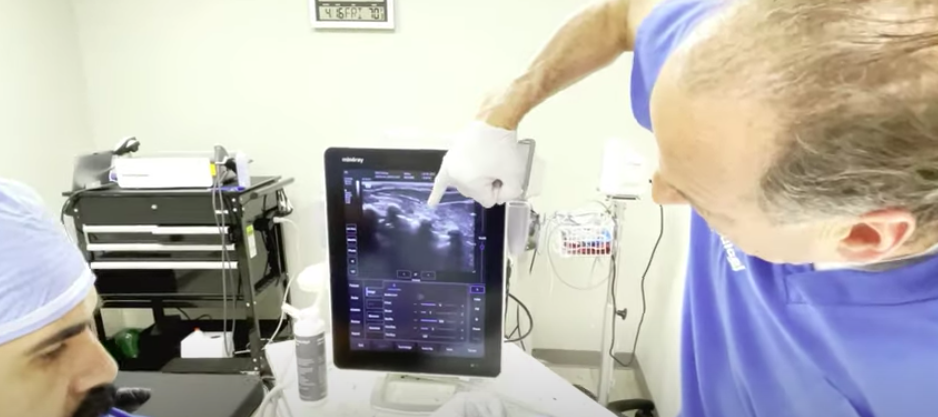PRP
Platelet Plasma Therapy
A PRP injection is a plasma concentrate, derived from your own blood, that is rich in growth factors, which promote healing of injured tendons, ligaments, muscles, joints and various musculoskeletal problems. PRP-Platelet Rich Plasma therapy is a great option for the patient with the chronic injury that never seems to go away, or athletic individuals who are looking for something to “speed up” the recovery process.
PRP injections have the potential to improve function and decrease pain for various issues, including – but not limited to – elbow, wrist, shoulder, hip knee, back and ankle. Early work is also showing promise for osteoarthritis.
Specialists
Board Certified
Platelet Rich Plasma Therapy For Pain
PRP injections have the potential to improve function and decrease pain for various issues, including – but not limited to – elbow, wrist, shoulder, hip knee, back and ankle. Early work is also showing promise for osteoarthritis.
This viable procedure may decrease the progression of more serious injuries, decrease overall healing time and decrease the overall need for surgical intervention.Growth factors are involved in the key stages of wound healing and regenerative processes, so activating your platelets plays a key role in the process of soft tissue healing.
Both acute and chronic injuries benefit from PRP Therapy by encouraging healing and discouraging the development of scar tissue, which further inhibits blood flow. PRP is a way to manage or eliminate pain in your back, neck, joints and soft tissues.
PRP Therapy is the injection of the patient's’ own high concentration of platelets into an injured tendon, ligament or muscle tear. The injection penetrates the scar tissue and brings natural healing cells to an area that is deficient, allowing the body to resume natural healing.
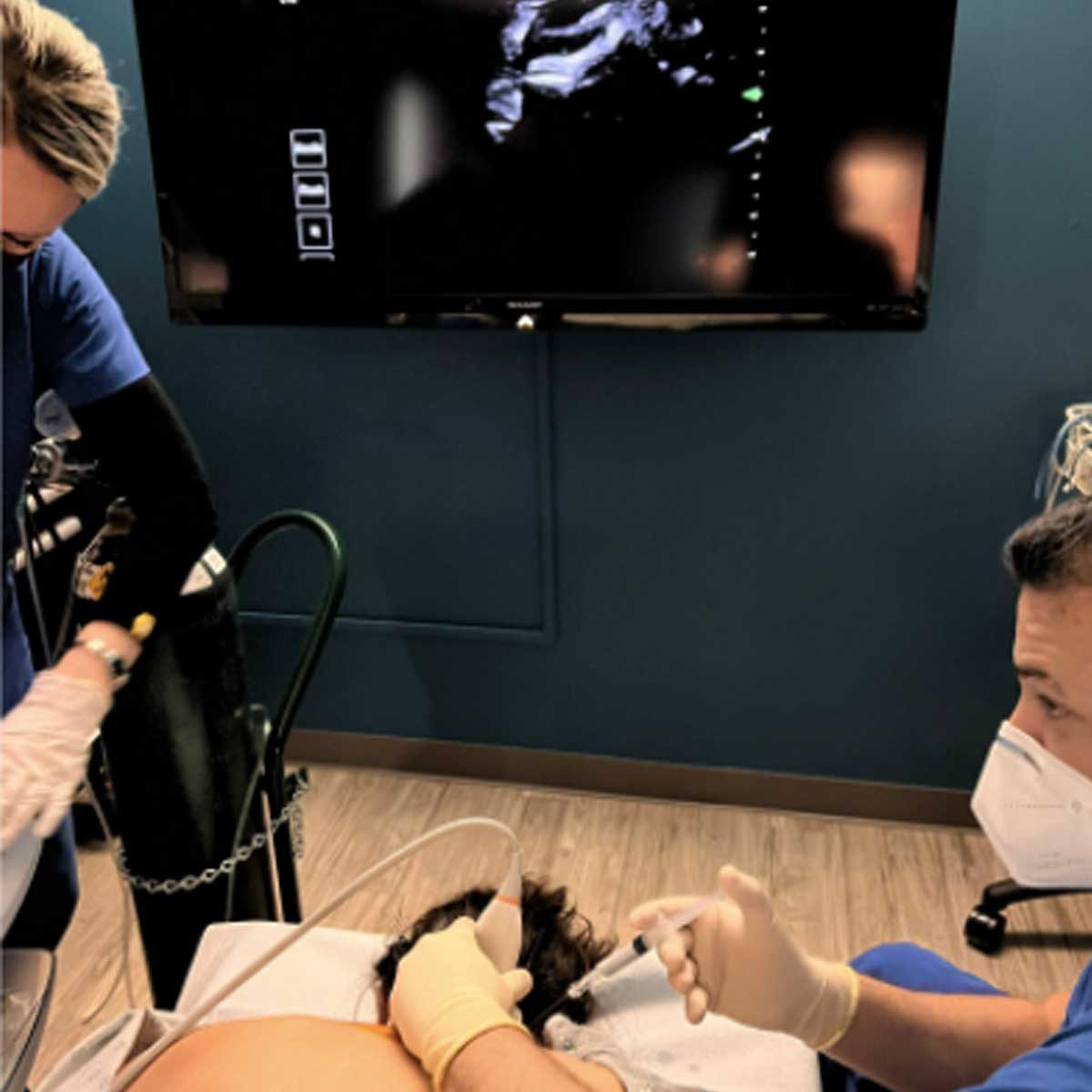
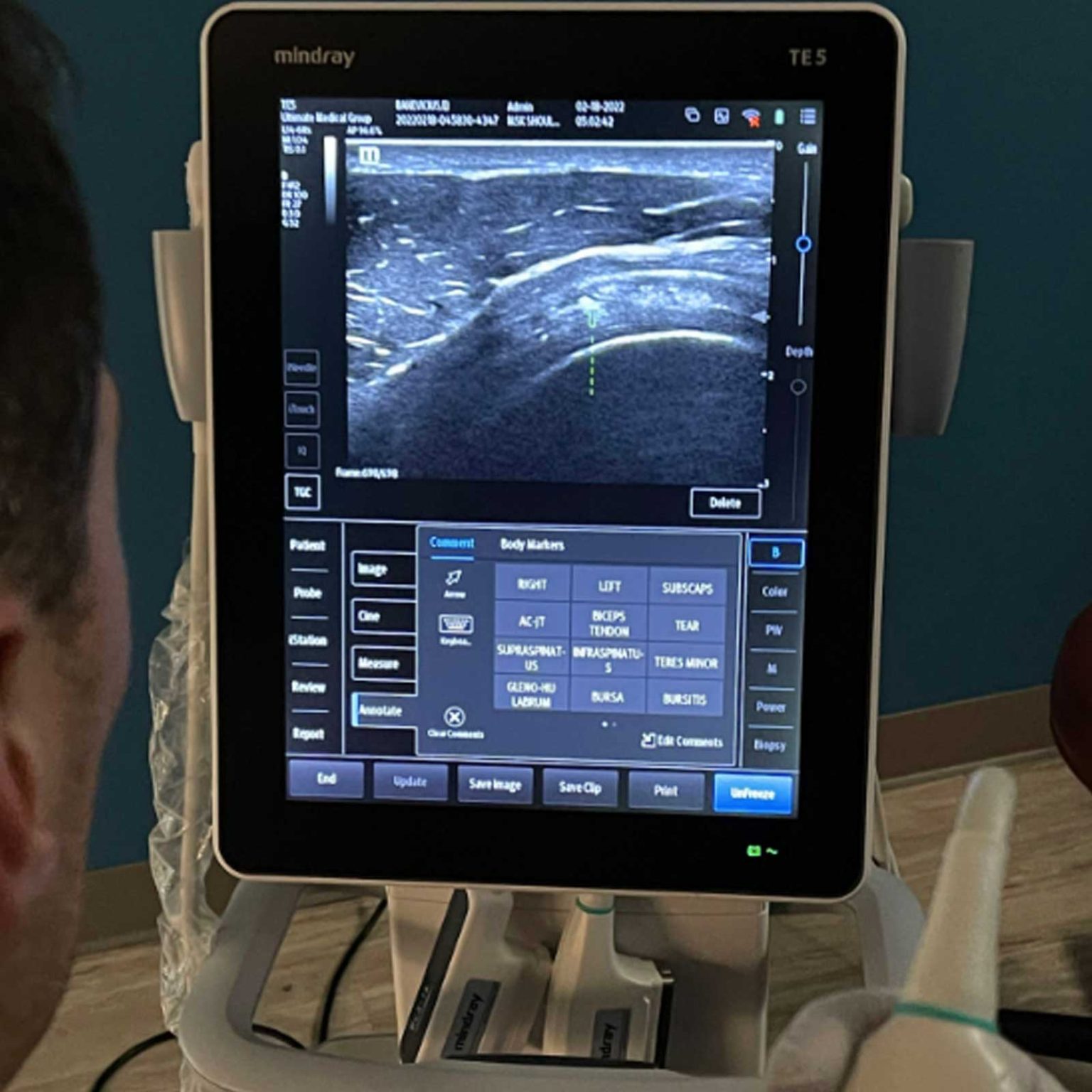
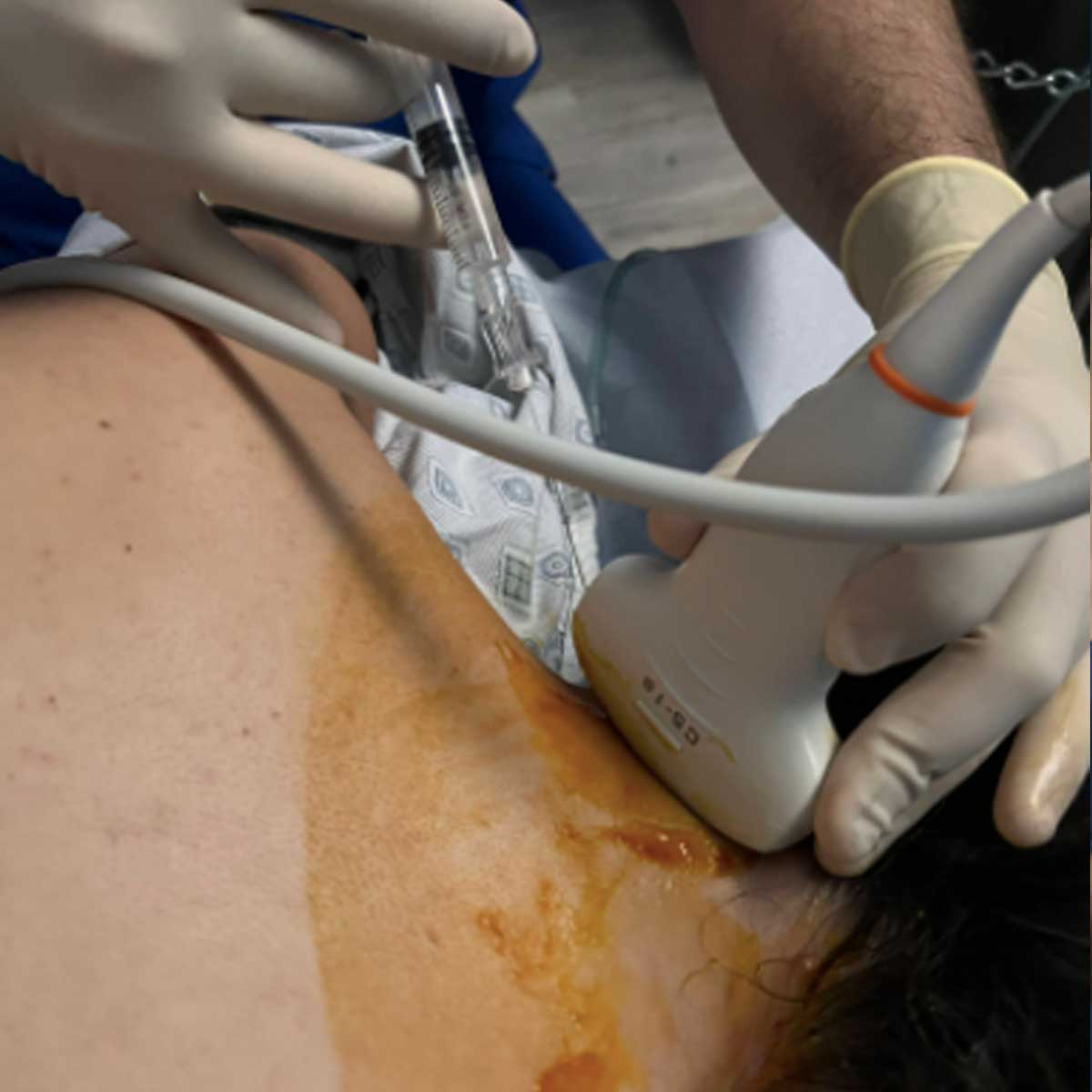
Key Benefits
01. Ultra Sound Guided Injections
Our physicians use high definition ultrasound-guided injections to pinpoint the area of injury.
02. PRP Stimulates Healing
Our physicians utilize the latest technology to process your Plasma injection which facilitates the body’s natural healing process.
03. Board Certified
Our elite team of doctors and technicians are the most trusted.
Why Choose PRP vs Prolotherapy?
Your PRP Processing Method and How It Can Effect Your Outcome:
PRP is currently rising in popularity for conditions ranging from musculoskeletal conditions to aesthetics. The efficiency of the treatments depends on the dose of viable platelets injected directly to the area of damage. The best PRP processing kits have been shown to produce platelet concentrations that are 7X to 14x higher than your whole blood. The increase in viable platelets, depending on the type of injury, substantially increases positive outcomes.
Many clinics offering PRP treatments will opt for processing methods that are faster and more economical. In fact, many processing methods have fewer platelets than whole blood! Making your treatment “Platelet Poor Plasma Therapy”.
Clinics will often administer injections without ultrasound needle guidance or an experienced clinician. Not knowing and seeing the exact area of injury drastically decreases the probability of a positive outcome. Unfortunately for the patient, PRP procedures have, at this time, no standardization in how the blood is processed and administered. While there are thousands of research articles on PRP and its efficiency, results of clinical studies vary drastically due to a current lack of standardization.
At Ultimate Medical Group we use Emcyte Pure PRP for our processing. All injections are performed using needle guidance by our experienced clinician. We base our outcomes on research and not luck. Harvesting your own blood to enhance your body’s own healing potential.
Why Choose PRP vs Prolotherapy?
Our entire staff is recognized for outstanding performance in their individual fields.
High Quality Lab
In iaculis nisi, a tempor diam luctus elit vulputate aliquet proin tincidunt
Unmatched Expertise
In iaculis nisi, a tempor diam luctus elit vulputate aliquet proin tincidunt
Precise Result
In iaculis nisi, a tempor diam luctus elit vulputate aliquet proin tincidunt
Qualified Staff
In iaculis nisi, a tempor diam luctus elit vulputate aliquet proin tincidunt
PRP Commonly Asked Questions
PRP therapy is done in our office and takes about 45 minutes in total. A small amount of the patient’s own blood is taken with a simple blood draw.
Using specialized processing techniques in our on-site dedicated lab this blood is spun down to separate out and concentrate the platelets and growth factors that are essential for tissue healing.
The resulting small amount of fluid with concentrated platelets and growth factors is called platelet rich plasma (PRP). The PRP concentrate is then injected into the injured area.
Yes. High definition ultrasound images are the best way to identify the area of injury. It is a live view, which enables the doctors to move you around if necessary, (which is very valuable particularly when viewing joints), causing your ligaments and tendons to move, allowing the doctor to see a problem that is often hidden by a stagnant picture. Our treating physician, only injects using live ultrasound imaging and is a certified ultrasound specialist. The physician is then able to use a needle to inject the PRP into the injured area and even between tightly packed collagen fibers.
PRP injections can be performed in tendons and ligaments all over the body. Just a few examples are:
- Cervical Instability
- Symptoms of Osteoarthritis
- Arthritic joints
- Lower back, degenerative disc disease
- Tennis elbow
- Carpal tunnel syndrome
- ACL tears
- Shin splints
- Rotator cuff tears
- Plantar fasciitis
- Neck Pain
- Hamstring Injuries



PLEASE MOVE CONTENT FROM UMG TO THIS SECTION -Lorem ipsum dolor sit amet, consectetur adipiscing elit. Ut elit tellus, luctus nec ullamcorper mattis, pulvinar dapibus leo.
Lorem ipsum dolor sit amet, consectetur adipiscing elit. Ut elit tellus, luctus nec ullamcorper mattis, pulvinar dapibus leo.
